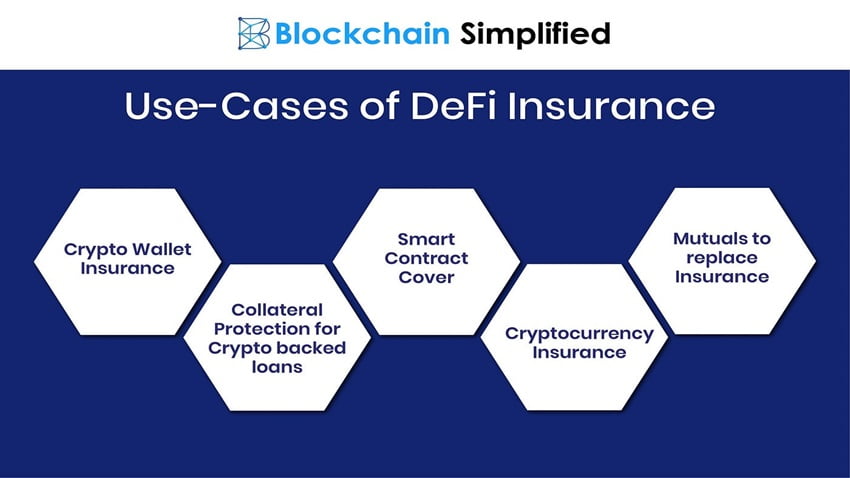Introduction
In the rapidly evolving world of blockchain technology, decentralized finance (DeFi) has emerged as a revolutionary concept, offering an open and transparent financial system. At the core of this system are smart contracts—self-executing contracts with the terms directly written into code. While DeFi provides numerous advantages, it also introduces unique risks, making insurance a vital component. This article explores the intricacies of smart contract insurance and its role in mitigating DeFi risks.
What Are Smart Contracts?
Smart contracts are programmable agreements that automatically execute actions when predefined conditions are met. Unlike traditional contracts, they eliminate the need for intermediaries, providing transparency and efficiency. However, their inflexible nature can be a double-edged sword, as any bugs or errors in the code can lead to unintended consequences.
The Rise of Decentralized Finance (DeFi)
DeFi platforms allow users to engage in financial activities such as lending, borrowing, and trading without relying on centralized institutions. This peer-to-peer financial system has seen explosive growth, with total value locked (TVL) in DeFi protocols reaching billions of dollars. The allure of high yields and financial inclusivity has attracted a diverse user base, driving innovation and competition.
Why Insurance is Crucial in DeFi
DeFi, while innovative, is not without its risks. The immutable nature of blockchain and smart contracts means that errors or hacks can result in significant financial losses. Insurance provides a safety net, offering financial protection against such events. It is crucial for building trust and encouraging broader adoption of DeFi services.
Types of Risks in DeFi
Hacking and Security Breaches: DeFi platforms are prime targets for hackers, given the substantial amounts of assets they hold. Security breaches can result in the loss of user funds, undermining trust in the system.
Smart Contract Bugs: Even the most thoroughly audited smart contracts can have vulnerabilities. A minor bug can lead to major financial losses, as seen in numerous high-profile incidents.
Market Volatility: The value of assets in DeFi can be highly volatile. Sudden price swings can affect the value of collateral and result in liquidation or insolvency.
Regulatory Risks: The regulatory landscape for DeFi is still developing. Changes in regulations can impact the legality and functionality of DeFi platforms.
Operational Failures: Issues such as network congestion or downtime can disrupt DeFi services, leading to potential losses for users.
What is Smart Contract Insurance?
Smart contract insurance is a specialized type of coverage designed to protect users against risks associated with smart contracts and DeFi platforms. Unlike traditional insurance, it focuses on digital asset risks and employs blockchain technology to automate claims and payouts. This type of insurance aims to provide users with peace of mind, knowing they are protected against unforeseen events.
How Smart Contract Insurance Works
Smart contract insurance operates by covering specific events such as hacks, bugs, or system failures. The coverage criteria are predefined, and if an insured event occurs, the insurance payout is automatically triggered. Oracles—external data providers—play a crucial role in verifying the occurrence of these events, ensuring the accuracy and transparency of the claims process.
Key Players in the Smart Contract Insurance Market
Several protocols have emerged as leaders in the smart contract insurance space. Notable examples include Nexus Mutual, Cover Protocol, and InsurAce. These platforms offer various types of coverage and have demonstrated their effectiveness through successful payouts for claims. For instance, Nexus Mutual covered significant losses during the 2020 Yearn Finance hack, highlighting the value of smart contract insurance.
Advantages of Smart Contract Insurance
Smart contract insurance offers several benefits, including enhanced security and increased user confidence in DeFi platforms. By mitigating risks, it helps stabilize the DeFi ecosystem and encourages more users to participate. Furthermore, it provides a financial safety net, ensuring that users are compensated in the event of a loss.
Challenges and Limitations of Smart Contract Insurance
Despite its advantages, smart contract insurance faces several challenges. Underwriting complexity is a major issue, as insurers must accurately assess the risk associated with each smart contract. Additionally, coverage limits and exclusions may apply, meaning not all losses are covered. This can leave users vulnerable to certain types of risks.
Evaluating the Cost of Smart Contract Insurance
The cost of smart contract insurance varies based on several factors, including the risk profile of the insured contract, the coverage amount, and the insurer’s assessment of potential threats. While it can be more expensive than traditional insurance due to the high-risk nature of DeFi, the protection it offers can be invaluable.
The Future of Smart Contract Insurance
The future of smart contract insurance is promising, with continuous advancements in technology and innovation. The integration of artificial intelligence (AI) and machine learning can enhance risk assessment and underwriting processes, making insurance more accessible and tailored to individual needs. As the DeFi ecosystem grows, the demand for robust insurance solutions is likely to increase.
How to Choose the Right Smart Contract Insurance
Choosing the right smart contract insurance involves assessing your specific coverage needs and evaluating potential insurers. Consider the insurer’s reputation, the range of coverage options available, and the terms and conditions of the policy. It is also important to understand the exclusions and limitations to ensure adequate protection.
Steps to Secure Smart Contract Insurance
Securing smart contract insurance typically involves an application process where the user specifies the coverage they need. Key considerations include the scope of coverage, the premium costs, and the claims process. It’s essential to carefully review the policy details and consult with experts if needed.
Conclusion
In the evolving landscape of DeFi, smart contract insurance plays a critical role in managing risks and protecting users. By providing coverage against potential losses, it fosters a more secure and trustworthy environment for digital financial activities. As the industry matures, smart contract insurance is set to become an indispensable component of the DeFi ecosystem.
FAQs
What is the main purpose of smart contract insurance?
The main purpose of smart contract insurance is to provide financial protection against risks such as hacking, smart contract bugs, and other operational failures in the DeFi space.
How is a claim processed in smart contract insurance?
Claims in smart contract insurance are typically processed automatically using oracles to verify the occurrence of a covered event, triggering an immediate payout.
Can smart contract insurance cover all types of DeFi risks?
Not all DeFi risks are covered by smart contract insurance. Coverage depends on the specific terms and conditions of the insurance policy, including exclusions and limits.
What should I consider when choosing a smart contract insurance provider?
When choosing a provider, consider factors such as the insurer’s reputation, the range of coverage options, the cost of premiums, and the claims process.
How does smart contract insurance impact the DeFi ecosystem?
Smart contract insurance enhances the DeFi ecosystem by providing a safety net for users, encouraging participation, and fostering trust in decentralized financial services.



